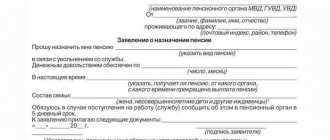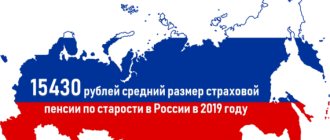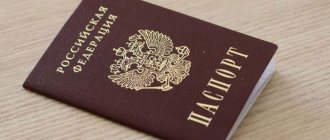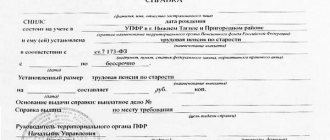About the types of pensions for state pension provision
State pension provision directly affects the interests of the country's disabled population. State pensions are intended for members of society who are not covered by the compulsory pension insurance system, who have not earned a retirement pension or who need additional financial support.
The article provides detailed information about the types of state pensions and the conditions for their assignment.
State pensions
These payments are designed to compensate for lost income, harm caused to health, and also provide a means of subsistence for persons recognized as disabled. Payments are made once a month.
State pensions are financed directly by the budget of the Russian Federation. They do not depend on transfers to non-state pension insurance funds or on contributions to the Pension Fund (PFR), as is the case with compulsory pension insurance.
Types of pension payments in the Russian Federation
In Russia, as a measure of support for certain categories of the population, the following state and social pensions are provided for state pension provision:
- state pensions for long service;
- social and government:
- by old age;
- by deprivation of a breadwinner;
- on disability.
Social pensions under state pension provision are intended to support members of society who, due to current circumstances, are unable to work. These payments are provided for residents of the Russian Federation permanently residing in Russia: Russian citizens, stateless persons or foreigners.
The range of persons entitled to receive a state old-age pension and the conditions for its assignment
defined by Art.
5 of the Federal Law of December 15, 2001 No. 166-FZ “On state pension provision in the Russian Federation.” In accordance with the specified article of Federal Law No. 166-FZ “On State Pension Provision in the Russian Federation”, the right to a state old-age pension
citizens who suffered as a result of radiation or man-made disasters have.
The conditions for assigning a state old-age pension are established in relation to specific categories of specified persons:
First category:
- persons who received or suffered radiation sickness and other diseases associated with radiation exposure as a result of the disaster at the Chernobyl nuclear power plant or with work to eliminate the consequences of the said disaster;
Second category:
- disabled people due to the disaster at the Chernobyl nuclear power plant;
Third category:
- participants in the liquidation of the consequences of the disaster at the Chernobyl nuclear power plant in the exclusion zone from April 26, 1986 to December 31, 1990.
The latter (participants in the liquidation of the consequences of the disaster at the Chernobyl nuclear power plant in the exclusion zone) are divided into two categories:
- participants 1986-1987 and
- participants 1988-1990.
Fourth category:
- citizens who work (have worked) or live (have lived) in various zones of radiation contamination.
This category includes citizens:
- those employed in the operation of the Chernobyl nuclear power plant and work in the exclusion zone;
- evacuated from the exclusion zone and resettled (resettled) from the resettlement zone;
- permanent residents in the residence zone with the right to resettle;
- permanent residents of a residential area with a preferential socio-economic status;
- permanent residents in the resettlement zone before their relocation to other areas;
- those employed at work in the resettlement zone (not living in this zone);
- those who voluntarily left for a new place of residence from the zone of residence with the right to resettle.
Law of the Russian Federation of May 15, 1991 No. 1244-1 “On the social protection of citizens exposed to radiation as a result of the disaster at the Chernobyl nuclear power plant.”
When assigning a state old-age pension, the fact and duration of residence or work in the relevant zone of radioactive contamination, as well as the zones of such contamination themselves, are determined in the manner prescribed by Law of May 15, 1991 No. 1244-1 “On the social protection of citizens exposed to radiation due to the disaster at the Chernobyl nuclear power plant."
In accordance with Art. 7 of this Law of May 15, 1991 No. 1244-1, territories exposed to radioactive contamination as a result of the disaster at the Chernobyl nuclear power plant are divided into four zones:
The first zone is the exclusion zone the 30-kilometer zone in 1986-1987 , and from 1988 to May 15, 1991, the resettlement zone ).
This zone is the territory around the Chernobyl nuclear power plant, as well as part of the territory of the Russian Federation, contaminated with radioactive substances as a result of the disaster at the Chernobyl nuclear power plant, of which, in accordance with Radiation Safety Standards, in 1986 and 1987. the population was evacuated;
The second zone is the resettlement zone.
This is part of the territory of the Russian Federation outside the exclusion zone, where the density of soil contamination with cesium-137 is over 15 Ci/km2, or with strontium-90 - over 3 Ci/km2, or with plutonium-239, 240 - over 0.1 Ci/km2;
The third zone is a residential zone with the right to resettle.
This is part of the territory of the Russian Federation outside the exclusion zone and resettlement zone with the density of soil contamination with cesium-137 from 5 to 15 Ci/km2;
The fourth zone is a residential zone with preferential socio-economic status . This is part of the territory of the Russian Federation outside the exclusion zone, resettlement zone and residence zone with the right to resettle with the density of radioactive soil contamination with cesium-137 from 1 to 5 Ci/km2.
In the specified zone, the average annual effective equivalent dose of radiation to the population should not exceed 1 mSv (0.1 rem).
The boundaries of these zones and the list of settlements located in them are established and revised depending on changes in the radiation situation and taking into account other factors by the Government of the Russian Federation at least once every five years.
If you have any questions about the violation of your rights, or you find yourself in a difficult life situation, then an online duty lawyer is ready to advise you on this issue for free.
STATE OLD AGE PENSION
General conditions for assigning pensions for state pensions
Pensions are assigned no earlier than the date when the right to it arose, in the same month when the application occurred.
Long service pensions
The assignment of a state pension for long service and insurance pensions for disability and old age, according to the law, occurs simultaneously.
Recipients are government employees of the Russian Federation (civilian and military), law enforcement officers, test pilots and astronauts.
Pensions for length of service are unlimited, with the exception of cases where pensions are assigned to civil servants and test pilots in addition to insurance pensions for disability. In such a situation, the duration of payment of the specified pension cannot exceed the period of disability.
For government employees
Federal government positions include the positions of the President of the Russian Federation, the Chairmen of the Government, the State Duma, the Federation Council, as well as their deputies. The list includes ministers, ambassadors, chairmen and judges of the Supreme and Constitutional courts, federal judges, the Prosecutor General, the Chairman of the Investigative Committee, the Chairman and auditor of the Accounts Chamber, the Chairman of the Central Election Commission, the Chairman of the Central Bank, heads of constituent entities of the Russian Federation, employees of these departments, and municipal employees. The full list of government positions in the Russian Federation is established by Presidential Decree.
According to Law No. 166-FZ “On State. Pension provision”, after dismissal, civil servants are granted a long-service pension if specified conditions are met.
Requirements:
- minimum acceptable length of service;
- replacement of federal government positions for the required period;
- The reason for dismissal is included in the list given in the law “On State. Civil Service of the Russian Federation" No. 79-FZ.
For retirement, the requirement is sixteen years of service in 2020, in each subsequent year the established period is increased by six months so that by 2026 it will reach twenty.
Minimum period of replacement of state RF position is at least 1 year.
The following grounds are allowed for dismissal:
- agreement of the parties;
- the contract has expired;
- the contract is terminated on the employee’s personal initiative;
- refusal to replace another proposed position on one of the following grounds: due to deteriorating health, as a result of replacement, the essential terms of the contract change, or refusal to transfer to another locality from the state. organ;
- dismissal at the initiative of the employer due to inadequacy of the position held: unsatisfactory state of health or due to failure to pass certification and non-confirmation of qualifications;
- reduction;
- abolition of a government department;
- termination of a contract for reasons beyond the control of the parties: reinstatement of an employee who previously held a position by court, the occurrence of an emergency;
- complete inability to work according to a medical certificate;
- reaching the maximum permissible age.
State and social pensions
State employees who terminate a contract on their own initiative and held government jobs until the moment of dismissal. positions in the Russian Federation for a period of seven years or more, with a total service period of twenty-five years, the pension is paid before the maturity of pensions assigned for disability and old age.
The pension is forty-five percent of the average monthly salary minus the insurance pensions established for old age and disability with fixed payments. For each year of exceeding the minimum length of service, 3 percent is added to the pension, up to a maximum of 75 percent.
Pension in case of loss of a breadwinner
Compensation for lost income of this type, such as a state survivor's pension, is issued for family members of deceased military personnel, astronauts and participants in man-made accidents and radiation disasters.
The right to a pension benefit arises for the following citizens who are related to a deceased military man:
- children who have not reached the age of majority, as well as young brothers or sisters and even grandchildren of the deceased (the maximum age for the purpose of payments is 23 years, subject to full-time study at the University);
- a non-working parent of the deceased, his spouse, grandfather or grandmother, provided that one of them is caring for a child, brother or sister of the deceased (the age of the offspring must be less than 14 years);
- parents and spouse of the deceased person, if they have reached retirement age or have registered the status of “disabled”;
- parents of employees who died as a result of military injury or while serving;
- grandparents, if there is no one else to support them;
- widows of military personnel who have reached 55 years of age and have not entered into a new marriage.
Pension accruals to the relatives of deceased military personnel are accrued in full, regardless of the performance of paid work.
Pensions are distributed in a similar way among relatives of persons affected by various man-made disasters. True, the widows of such citizens are not entitled to anything, and in some cases they are required to confirm the fact that they were dependent on the deceased person.
If we are talking about family members of citizens who suffered during the events at the Chernobyl nuclear power plant, then the following will be entitled to a pension:
- disabled parents, regardless of the availability of a place of work;
- children under 18 years of age or under 25 years of age, but enrolled full-time;
- the spouse of the deceased in the case of caring for a child whose age is less than 14 years (the presence of a place of work does not play a role here);
- a wife over 50 years of age and a husband over 55 years of age or with a disability;
- grandfathers and grandmothers who have reached 60 and 55 years of age, respectively, or if they have a category of disability, but provided that there are no citizens capable of providing for them.
A pension is also provided to relatives of astronauts in the event of their death. Minor children and spouses receive the payment. As well as elderly parents whom the person fully supported during their lifetime, or disabled parents.
In addition, widows of military personnel and astronauts who have not remarried, as well as parents of those killed during military service, can count on receiving a state survivor's pension and another benefit at the same time. Moreover, the choice can be based on the following options:
- insurance pension for old age or for any category of disability;
- social pension;
- long service pension.
Depending on his own needs, a person can choose the most suitable financial support option for him.










